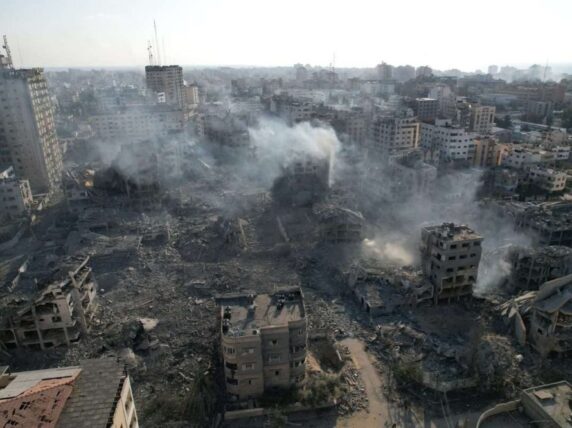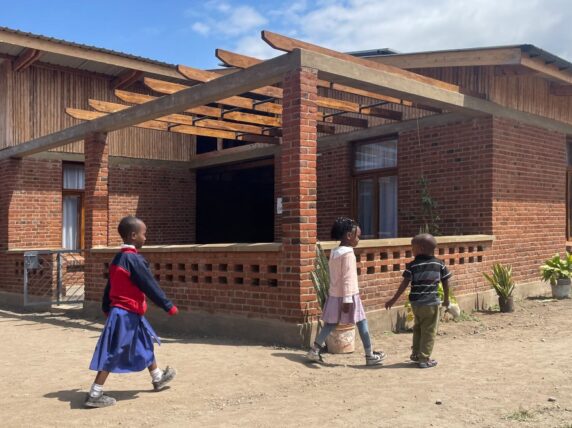Acting now, protecting the future: 30 years of child’s rights
Today is the 30th anniversary of the UN Convention on the Rights of the Child (UNCRC), one of the most visionary and universally accepted human rights treaties in history.
It is indisputable that, since 1989, the lives of countless millions of children have been positively transformed. Children are now recognised as rights holders with fundamental entitlements to survival, development, protection, and participation, so many more are living healthier, safer and longer lives.
How can we improve child’s rights?
But these gains are not equally shared. Children are disproportionately affected by abuse, poverty, climate change and conflict and the most vulnerable continue to be left behind. Children now make up 30% of the world’s population but over half of the world’s poor.
The most vulnerable are discriminated against due to characteristics such as gender or disability. They’re marginalised because they live in conflict zones, are separated from family or are caught up in the largest mass migration of humans ever seen.
There has also been more progress in some areas compared to others. Millions more children now receive a primary education and are vaccinated than was the case in 1989. But at the same time we are failing children in two key areas.
- There is nowhere that children are fully protected from neglect, abuse, violence and exploitation.
- There is nowhere where a child’s right to participate, to have their views taken into account in all matters which affect them, is fully realised.
Why we need to listen to children
The rights to protection and participation are interwoven: if we do not listen to children, who are the experts on their own realities, how can we possibly understand the risks that they face?
We asked children from Ethiopia, Kenya, Sierra Leone, India, Syria and Uganda what makes them feel safe. This is what they told us.
Creating spaces for children to explore and speak out about the issues affecting them is fundamental to their safety and equips them with critical life skills, such as risk assessment and problem-solving. But adults must learn to listen and act upon what children tell us. If we are to protect children, we must work in partnership with them.
If we do not listen, if we continue to leave children in spaces where they are vulnerable to harm, then our efforts to help them realise their own potential will simply be wasted. Who wants to go to school if they’re to be beaten or abused?
And as recent high-profile child advocates such as Malala Yousafzai and Greta Thurnberg have shown, children are often less constrained by preconceptions about what is and isn’t possible and can highlight clear solutions to seemingly impossible problems.
What we need to do next
The Department for International Development’s evident commitment to strengthening child protection through the establishment of a dedicated Protecting Children Hub and for investing to tackle a range of protection issues, like early marriage and child labour, is commendable.
Adopting a systems-based approach to child protection that recognises the role that children can play in protecting themselves as well as strengthening their protective environment is a crucial step forward.
Subscribe to our newsletter
Our weekly email newsletter, Network News, is an indispensable weekly digest of the latest updates on funding, jobs, resources, news and learning opportunities in the international development sector.
Get Network NewsBut the UK needs to go further if we are to realise the rights enshrined in the UNCRC and deliver the ambitions of the SDGs. We must fully honour the promises we made 30 years ago by committing to the development of a comprehensive, co-ordinated and cross-governmental child rights strategy. One that is informed by the views and priorities of children as partners and key stakeholders and not just “beneficiaries”.
Children’s rights are indivisible and interdependent. We cannot focus on some rights at the expense of others. If we are serious about protecting our future, ending poverty and safeguarding our planet, we must protect and empower children.
Eradicating violence against children now and creating just, inclusive societies, where no one is left behind, will mean a world where all children are protected and valued and able to shape their own future. But we can only achieve this if we listen to children and work with them to create a world fit for them to live in.
If we are serious about protecting our future, we must protect and empower children. Now, and for the foreseeable future.
Category
News & ViewsThemes
Politics



